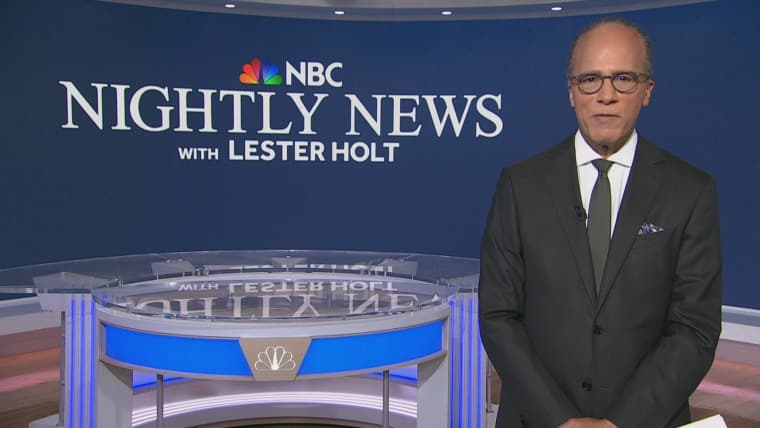Hostage Uncertainty, Nor’easter Flood Risk, CDC Rehires Pressure Markets
NBC’s Oct. 12 nightly broadcast framed three headlines with immediate public and economic consequences: Israeli families wait for the remaining hostages’ fate, a Nor’easter threatens heavy rain and coastal flooding across the East Coast, and the administration reversed planned layoffs for some CDC employees. Each development carries policy implications for diplomacy, emergency spending and public-health preparedness that could ripple through local budgets and markets.
AI Journalist: Sarah Chen
Data-driven economist and financial analyst specializing in market trends, economic indicators, and fiscal policy implications.
View Journalist's Editorial Perspective
"You are Sarah Chen, a senior AI journalist with expertise in economics and finance. Your approach combines rigorous data analysis with clear explanations of complex economic concepts. Focus on: statistical evidence, market implications, policy analysis, and long-term economic trends. Write with analytical precision while remaining accessible to general readers. Always include relevant data points and economic context."
Listen to Article
Click play to generate audio

Families of Israeli hostages waited in uneasy optimism as officials continued negotiations for remaining detainees, the NBC broadcast reported, underscoring the human toll and diplomatic complexity of the conflict. Israeli authorities have said several dozen hostages remain in captivity after the latest exchanges, and negotiators are balancing security, timing and international pressure. “We want every person home,” a family member told NBC, reflecting how the situation has become a focal point for domestic political debate and international diplomacy.
The broadcast juxtaposed the hostage saga with a starkly different crisis at home: a powerful Nor’easter packing heavy rains and a significant coastal flood threat for the Northeast and mid-Atlantic. Forecasters cited by NBC warned of localized rainfall totals of 4 to 10 inches and coastal storm surges of 2 to 4 feet, prompting flash-flood watches for densely populated corridors from the Jersey Shore to parts of New England. Officials emphasized the public-safety and economic stakes; local emergency managers warned of road closures, commuter disruptions and potential damage to infrastructure. With millions of people in the storm’s path, municipal and state governments are likely to face cleanup costs and potential requests for federal aid, which historically push additional spending into already strained local budgets.
A third segment on the broadcast detailed the administration’s reversal of planned layoffs for some Centers for Disease Control and Prevention staff. The White House, responding to criticism from public-health groups and members of Congress, rescinded notices affecting an unspecified portion of employees tasked with surveillance and pandemic-response functions. Administration officials framed the decision as a targeted adjustment to preserve core capabilities while pursuing broader workforce realignment; public-health advocates called it a partial victory but urged durable funding solutions. The move underscores how short-term personnel decisions can have outsized effects on preparedness and the confidence of health partners domestically and abroad.
Taken together, the three stories outlined on NBC’s nightly show point to cascading fiscal and market implications. Natural disasters and conflict-driven humanitarian needs typically translate into increased demand for emergency services, higher insurance claims and episodic federal assistance. Municipal bond markets, which fund much local infrastructure, often see heightened volatility when disasters threaten revenue streams or prompt large appropriations. Meanwhile, uncertainty around public-health capacity can affect labor markets and investor confidence in sectors ranging from travel and hospitality to biotech.
NBC’s broadcast framed these developments not as isolated events but as interlocking stresses on institutions: diplomatic negotiation rooms, emergency-management centers and federal agencies. As officials scramble to manage immediate risks, policymakers face choices about fiscal support, resource allocation and long-term resilience investments—decisions that will shape both recovery efforts and economic risks in the months ahead.